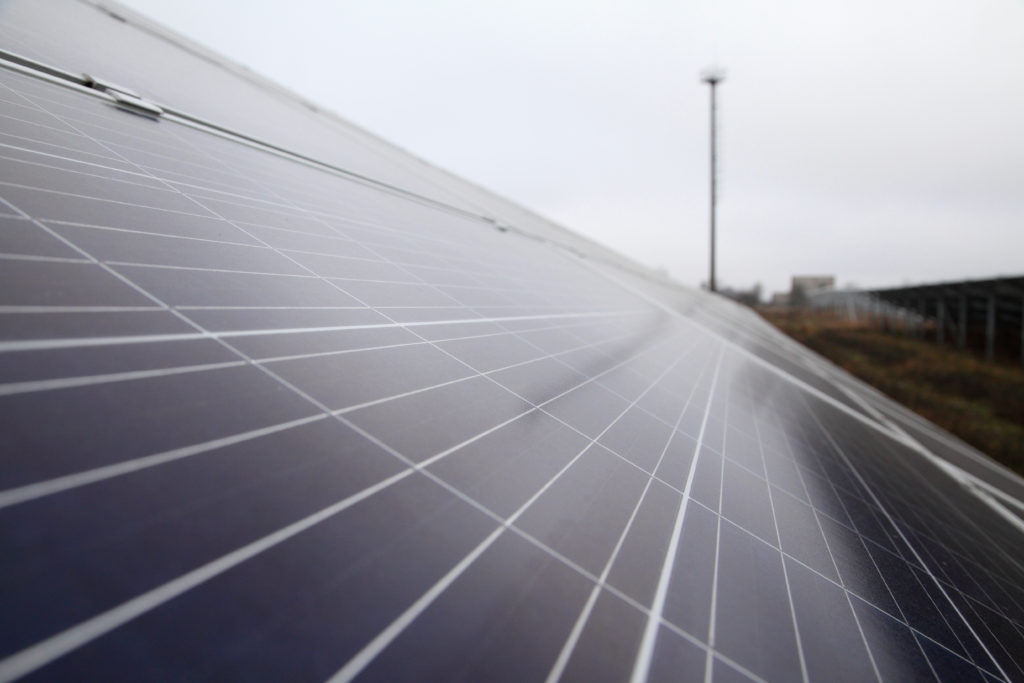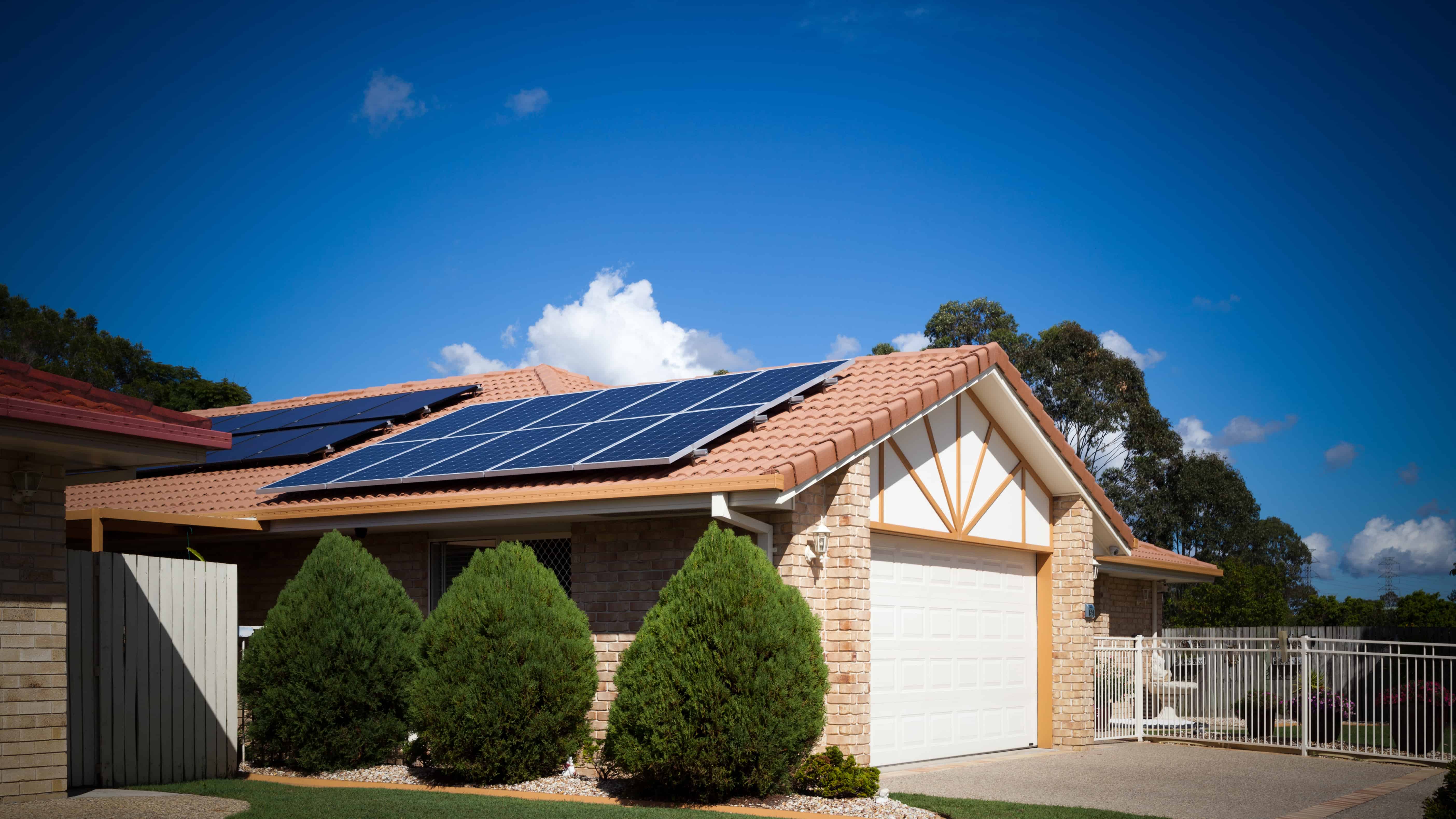
Believe it or not, solar power panels are actually built to withstand all kinds of weather in any climate at any given time.
Solar panels are waterproof, meaning they are able to withstand rain, especially a hurricane, and are most likely able to continue to produce power. More often than not, solar panels are able to withstand up to 140 mph winds; that’s a Category 4 hurricane.
But how do you care for your solar panels when in a hurricane? What do you once the hurricane has passed? Well, let’s learn together shall we.
Do Solar Panels Work When it’s Raining
As stated previously, the answer is absolutely; solar panels still work during any type of weather, really. Whether it is a simple thunderstorm or a massive hurricane, the solar panels are still able to work as long as they are still able to receive solar energy. They are most often able to produce energy through any type of weather.
Rain is also beneficial because it helps to wash away the dirt that has collected on the solar panels. From a hurricane, water is beating down on those panels are hard, but can still be beneficial. Dirt can affect the power that is collected from solar panels, so rain is helpful because now you don’t have to climb up to clean them. It’s not often that water seeps into the cracks on a solar panel, in fact it is fairly rare, so not something to stress about but also something to consider.
How Does Wind Effect Solar Panels
During a hurricane, wind is coming from any and all directions. The thing about solar panels is that they are installed just a few inches above the roof of the home; with this space, wind can get underneath and may uproot the panels. This really only happens if the wind speeds are above 150 mph and if the panels have not been installed properly.
All solar panels are put through testing to ensure that they are able to withstand pressure and the elements from the outdoors. Hurricanes have a tendency to destroy anything in its path, so there isn’t always a guarantee that the panels will remain without the home attached.
Effects of Hail Against Solar Panels
Hail has a tendency to leave large dents and holes in anything it comes across. But the thing about solar panels is that they are also built to withstand hail. Crazy, right? Anything that is within an inch in diameter and coming at 50 mph, then the solar panel will be totally fine. One thing to look out for is that if hail does happen to hit at a specific spot repeatedly, there may be a few cracks or a hole that appears in the panel. This is a rare occurrence, but isn’t impossible.
When getting your solar panels installed, the company will be able to help tell you which way to place your solar panels, and what to look out for. When living in a drier climate, it obviously isn’t something to look out for. Areas that are more susceptible to hurricanes will be informed as to what hurricanes work best for them.
What to Do Before a Hurricane

Take pictures of what the solar panels look like before the hurricane hits. Try to accurately document the current condition of the solar panels so that insurance and the warranty protection will know what was and wasn’t pre-existing. Documentation helps to protect you and your investment.
When your solar panels were installed, there was an option of having a lighting protection system installed. If that wasn’t done from the start, that should be done before the hurricane occurs. If lightening strikes, then it can cause serious damage to the solar panels or even the equipment of your home. By redirecting the lightening the safety and integrity of your home and solar panels will remain intact after the storm.
Make sure that you understand what your warranty means for your solar panels. How long does your warranty last? What does your warranty cover? What damages will be fixed? If damage does occur during the storm, you want to make sure that you can get them repaired or receive new ones if necessary. Taking pictures once the hurricane is over and contacting someone will help you to get an estimate once everything has settled.
And last but not least, review your insurance policy and what it does and doesn’t cover in the event of a hurricane. Besides your solar panels, in the event that damage occurs to your home, make sure that if there are cracks, water leakage, flooding, and so forth that it will be protected and covered.
What to Do About Lights After a Hurricane
Though you may have solar panels attached to your home, you are still attached to the grid so that whatever energy you don’t use goes back into the grid and is recirculated to others. When an outage occurs, then all solar energy will be shut down so that no damages or fires occur. But once everything is over, how do you get the lights on?
Consider adding a battery pack to your solar power grid; this will store any leftover electricity into the pack to be saved when the power goes out. The battery pack won’t be able to power your entire home, but it will provide power to the refrigerator, microwave, and other important elements of the home. This is a highly encouraged package so that if grid outages happen often where you live, then this is certainly something to invest in.
What Not to do After a Hurricane
Do NOT get on your roof to check on your panels after the hurricane is over. The roof may be incredibly unstable, and the panels could be loose as well. It’s best to call a professional once the hurricane is over so that they can check and make sure that everything is in working order. Leave everything to a professional who would know what needs to be fixed or bolted back down.